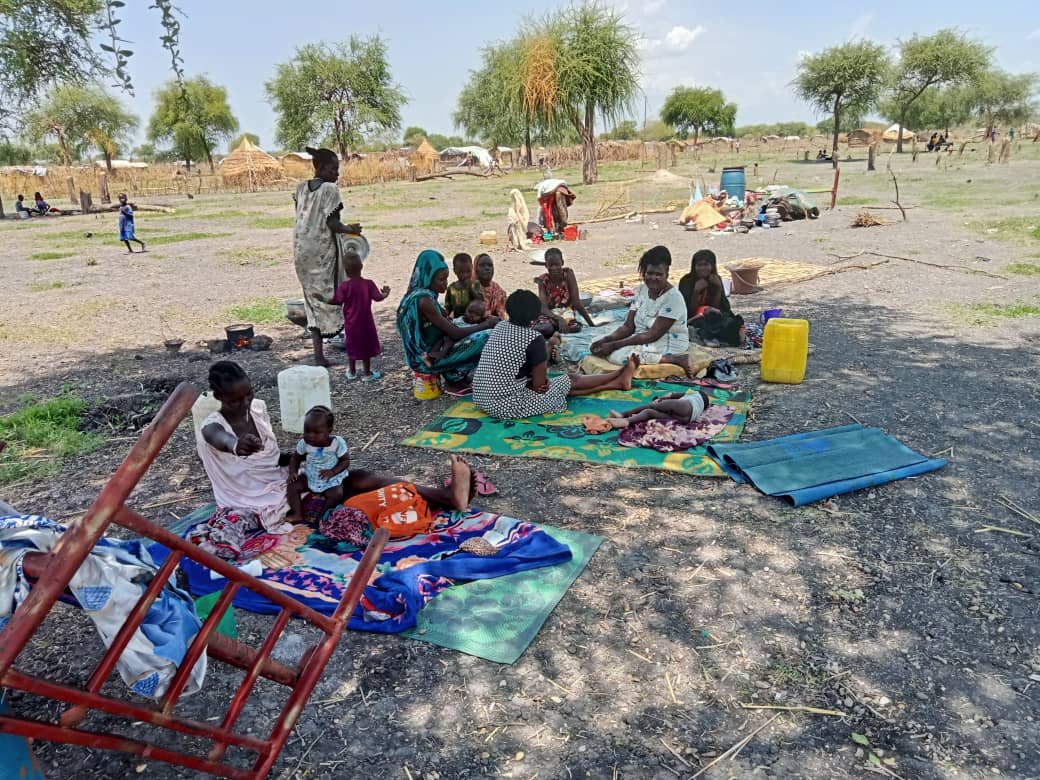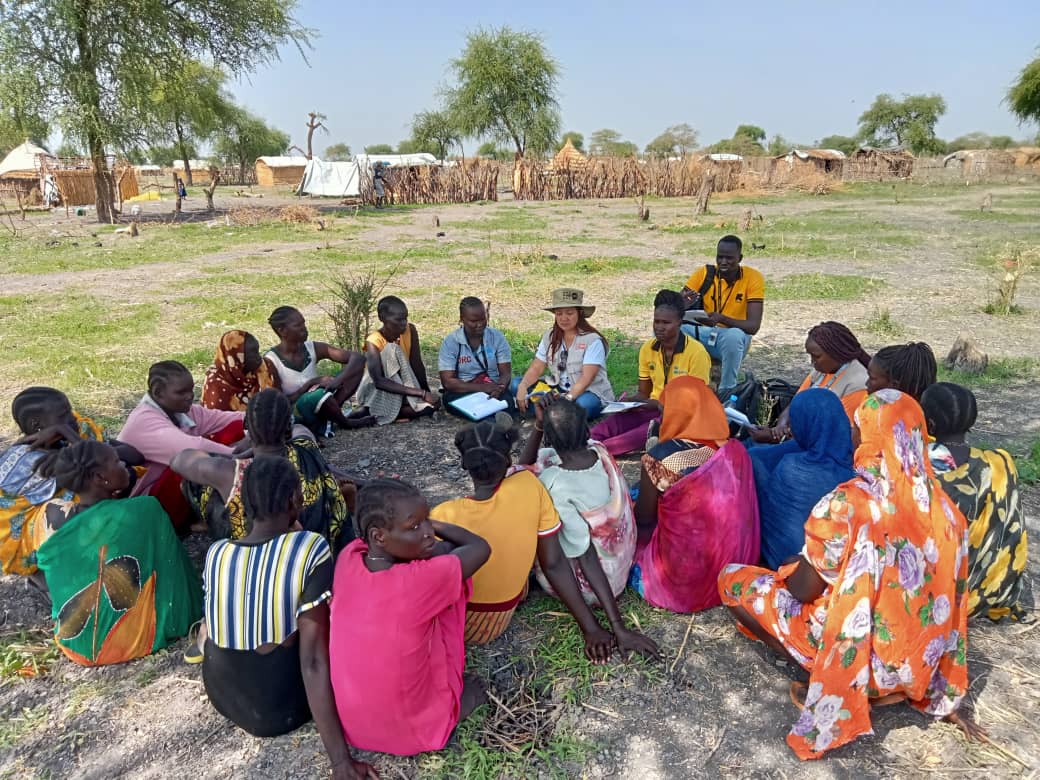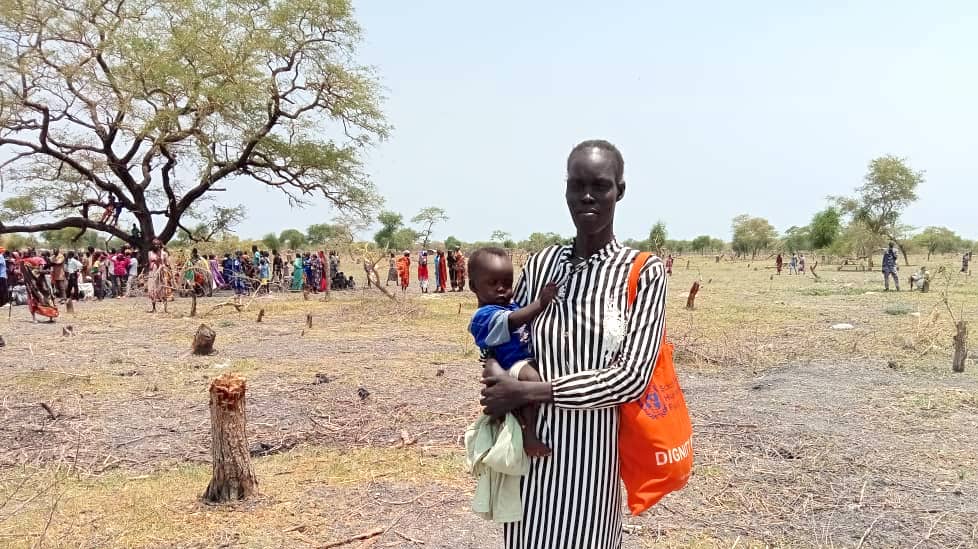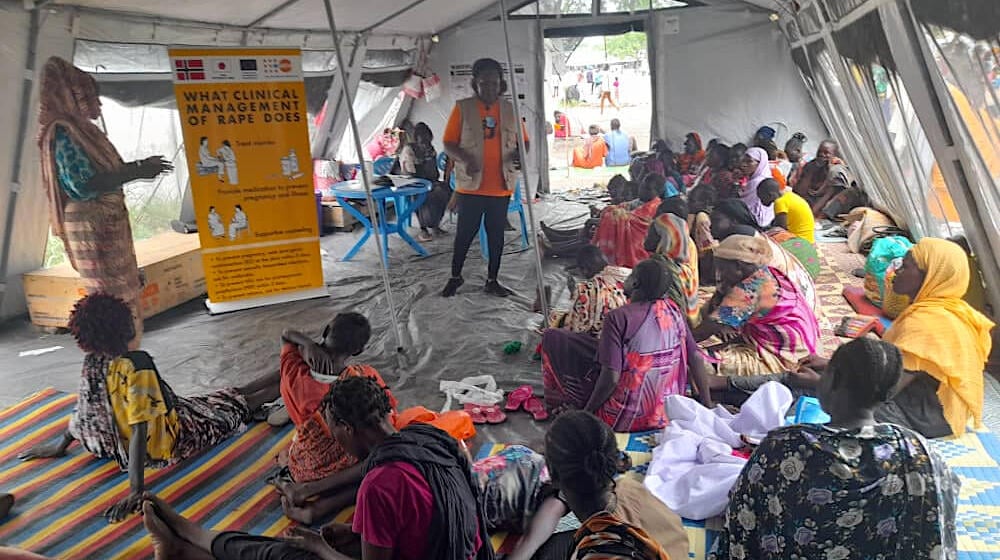MALAKAL, South Sudan – “My neighbour Rose* travelled with me to Renk, but her three daughters stayed behind in Khartoum. Later she learned they had been gang raped,” said Martha.*
Martha had recently arrived in the port of Malakal, a key transit point for those fleeing the violence in Sudan and crossing into South Sudan. More than 170,000 returnees and refugees have so far arrived in Malakal since the conflict erupted on 15 April, a number that will only increase if the crisis continues.
Sexual violence is reported to be soaring in areas of Sudan, where there is heavy fighting, as well as along transit routes.
The Bulukat transit centre beside the port currently hosts some 5,000 returnees from South Sudan. Women and girls at the centres told staff at a safe space supported by UNFPA, the United Nations sexual and reproductive health agency, they had witnessed or been subjected to rampant sexual violence in Khartoum and Omdurman.

Rose decided to risk going back to Khartoum in search of her daughters. She found two of them distraught and brutalized; she rushed them to hospital. Later she would find her youngest child on the side of the road, unconscious from being beaten and raped. The young girl died shortly after.
Rose’s heartbreak is one among countless others, as once again women’s and girls’ bodies become a battleground in a conflict they had no part in creating.
UNFPA is working in Upper Nile, Unity and Greater Bahr el Ghazal states in South Sudan to ensure returnees and refugees can access sexual and reproductive health support and gender-based violence response services. Staff are on the ground in health facilities, women’s and girls’ safe spaces, and one-stop centres, which offer integrated medical, legal and psychosocial support for survivors of gender-based violence.
Violence that knows no borders
Already terrified, the threat of further abuse hangs heavy over those fleeing, as they continue their dangerous journeys to reach the border crossing. The majority are crossing through Renk in South Sudan’s Upper Nile State, either by road or by boat.
UNFPA is holding awareness sessions on gender-based violence and the help available to survivors at the transit centre in Bulukat, which around 80 people attend every day. At one session, Ajak* explained that road blocks had been set up along the way to Renk, with women and men separated from each other as they were stopped. Many reported being sexually assaulted and robbed of their money, food and belongings.
Once over the border, they are faced with a dire lack of food, clean water or any kind of sanitary supplies. Health care is scarce, where available at all: One woman recalled seeing a pregnant returnee giving birth in a boat on the way to Renk.

Still, Nyamal*, also a South Sudanese returnee, told UNFPA, “Even this [situation] isn’t as bad as in Khartoum and Omdurman.”
Millions are facing mounting, multiplying risks as they try to escape Sudan with their lives. Too many have lost family and loved ones along the way – often in front of their eyes.
Women are selling their clothes and belongings to buy food, while others search for firewood to sell – putting them at further risk of predators as they venture far and often alone into the deserted bush. Even women selling tea at the market and working in restaurants are in danger, with reports of traders exploiting them and coercing them into sex. Most women and children are sleeping outside as there are no formal shelters, only increasing their exposure to violence and abuse.
The crisis is likely to lead to rising unintended pregnancies and sexually transmitted infections, on top of the physical and mental trauma hundreds of thousands are already suffering.
Ensuring access to essential services
The ongoing fighting in Sudan has now displaced more than 3 million people, with some 750,000 seeking shelter from the conflict in neighbouring countries, of whom more than 175,000 people have so far arrived in South Sudan. As the violence shows few signs of easing, the number of people leaving Sudan will likely surpass 1 million by October this year.

There are more than 530,500 women and girls of reproductive age in Sudan, of whom an estimated 53,000 women are currently pregnant. Around 5,900 will give birth amid the chaos in the coming month. The crisis has also put more women and girls – an estimated 4.2 million – at risk of gender-based violence.
UNFPA has reinforced its presence on the border between Sudan and South Sudan by sending additional staff and reproductive health supplies to Malakal and Bentui, including for maternal health care and the clinical management of rape. In the first two weeks of July, a UNFPA-supported one-stop centre reached more than 550 people with gender-based violence services, including 200 women and more than 190 girls.
Despite continuing to operate, services are severely stretched as more and more people arrive and supplies run low. Help is urgently needed to support vulnerable women, men, boys, and girls, including those affected by the crisis in Sudan.
As part of the Sudan regional response, UNFPA requires nearly $2 million for South Sudan over the next six months.
*Names changed for privacy and protection


